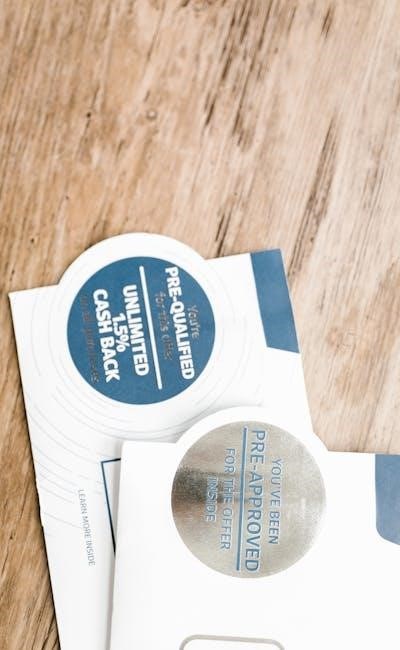
Understanding the Illicit World of «Dumps» (Compromised Card Data)
What are «Dumps» and Why are They Dangerous?
The term «dumps» refers to stolen data extracted from compromised cards‚
typically containing the BIN‚ CVV‚ track 1/2 information‚ and sometimes
fullz (full information including name‚ address‚ etc.). This data fuels widespread
fraud and financial crime. The danger lies in the potential for identity theft‚
unauthorized purchases‚ and significant risk to individuals and financial institutions.
Carding‚ the practice of using compromised accounts and stolen data
for illicit gain‚ thrives on the availability of these «dumps.» The dark web serves
as a primary hub for their trade‚ attracting individuals involved in illegal
criminal activity. Even possessing this data is a serious offense.
Understanding the components of a «dump» is crucial. The card verification value
(CVV) and magnetic stripe data (track 1/2) allow for both online and in-person
fraudulent transactions. Non-vbv cards (those without Verified by Visa) are often
targeted due to reduced verification layers. Security breaches and data breach
events are common sources‚ highlighting the importance of robust online security.
Attempting to purchase «dumps» is inherently risky‚ rife with scams. Buyer beware is paramount!
Many marketplace listings are fraudulent – offering invalid or already-spent stolen data.
Vendors often disappear after receiving payment‚ leaving you with nothing. Escrow services‚
while intended to provide trust‚ can be compromised or controlled by the scammer;
Reputation and feedback are often faked; don’t rely solely on them for validation.
Anonymity tools like VPNs and proxies offer limited protection against sophisticated
digital forensics and law enforcement tracking. The promise of encryption doesn’t
guarantee safety from skilled investigators.
Even if you receive seemingly valid data‚ the risk of chargebacks and detection is high.
Illicit activities attract attention‚ increasing your chances of facing severe legal ramifications.
Remember‚ engaging in carding and related cybercrime carries significant penalties.
How «Dumps» are Obtained and Traded
Sources of Compromised Card Data: The Path to the Dark Web
Stolen data originates from various sources: phishing attacks‚ malware infections‚
and security breaches at retailers. This data is then aggregated and sold on underground forums
and dark web marketplaces.
The journey involves «carders» exploiting vulnerabilities to extract compromised cards’
information. Data is often traded in bulk‚ with prices varying based on completeness (fullz vs.
just CVV) and verification status (VBV/non-VBV).
The origins of “dumps” are diverse and insidious. Data breaches at major retailers and financial institutions are prime sources‚ exposing millions of records. Phishing campaigns‚ cleverly disguised as legitimate communications‚ trick individuals into revealing their card verification value (CVV) and other sensitive information. Malware‚ such as keyloggers and card skimmers‚ silently steal data from infected computers and point-of-sale systems.
Compromised accounts resulting from weak passwords or reused credentials also contribute significantly. Once obtained‚ this stolen data doesn’t remain isolated. It’s aggregated‚ validated (often through automated checks)‚ and then funneled into the dark web. Underground forums act as initial trading posts‚ before data lands on dedicated marketplaces. The path is often obscured by layers of encryption and the use of proxies and VPN services to maintain anonymity‚ making tracing the source incredibly difficult. The entire process underscores the critical need for robust online security practices and proactive data breach monitoring.
Navigating the «Marketplace»: Vendors‚ Escrow‚ and Risk
The Ecosystem of a Dark Web Marketplace
Dark web marketplaces facilitate the trade of “dumps” through vendors offering
varying quality and quantity. Escrow services are often used‚ theoretically providing
trust by holding funds until validation of the stolen data. However‚ these
are frequently compromised or run by the same individuals as the vendors.
Buyer beware is paramount. Reputation and feedback systems exist‚ but are
easily manipulated. The risk of receiving unusable or already spent compromised cards
is extremely high. Authenticity is rarely guaranteed‚ and chargebacks are often
impossible due to the illegal nature of the transaction.
Navigating these illicit platforms requires extreme caution. Vendors often employ sophisticated tactics to appear legitimate‚ including detailed listings and seemingly positive feedback. However‚ these are frequently fabricated or purchased. The prevalence of “middlemen” adds another layer of risk‚ as they can easily abscond with funds or deliver worthless stolen data.
Escrow services‚ while presented as safeguards‚ are often controlled by the same individuals operating the marketplace or acting in collusion with vendors. Verification processes are minimal‚ and disputes are rarely resolved fairly. The promise of high-quality fullz or non-vbv cards at incredibly low prices is a classic red flag. Always question the authenticity and source of the data.
Furthermore‚ the use of proxies and VPN services by both buyers and sellers complicates tracing and accountability; Anonymity is prized‚ but it also shields scammers. Remember that engaging with these marketplaces‚ even to “test” the waters‚ carries significant legal consequences and supports criminal activity. Prioritize online security and avoid participation altogether.
Legal Ramifications and Law Enforcement Efforts
Mitigating Risk and Understanding the Legal Consequences
Protecting Yourself from Becoming a Victim of Carding
The best defense is avoidance. Never engage with sources offering compromised cards.
Strengthen your online security with strong‚ unique passwords and enable two-factor verification.
Regularly monitor your financial accounts for unauthorized activity. Be wary of phishing attempts
designed to steal your information.
If you suspect your data has been part of a data breach‚ immediately contact your financial
institutions. Understand that even attempting to purchase «dumps» is illegal and carries
severe penalties. Law enforcement actively investigates cybercrime related to carding.




Excellent article! The focus on the scams within the «dumps» market is a key point often overlooked. People think they
This is a really important and well-written piece. It clearly explains a complex and frightening aspect of cybercrime in a way that